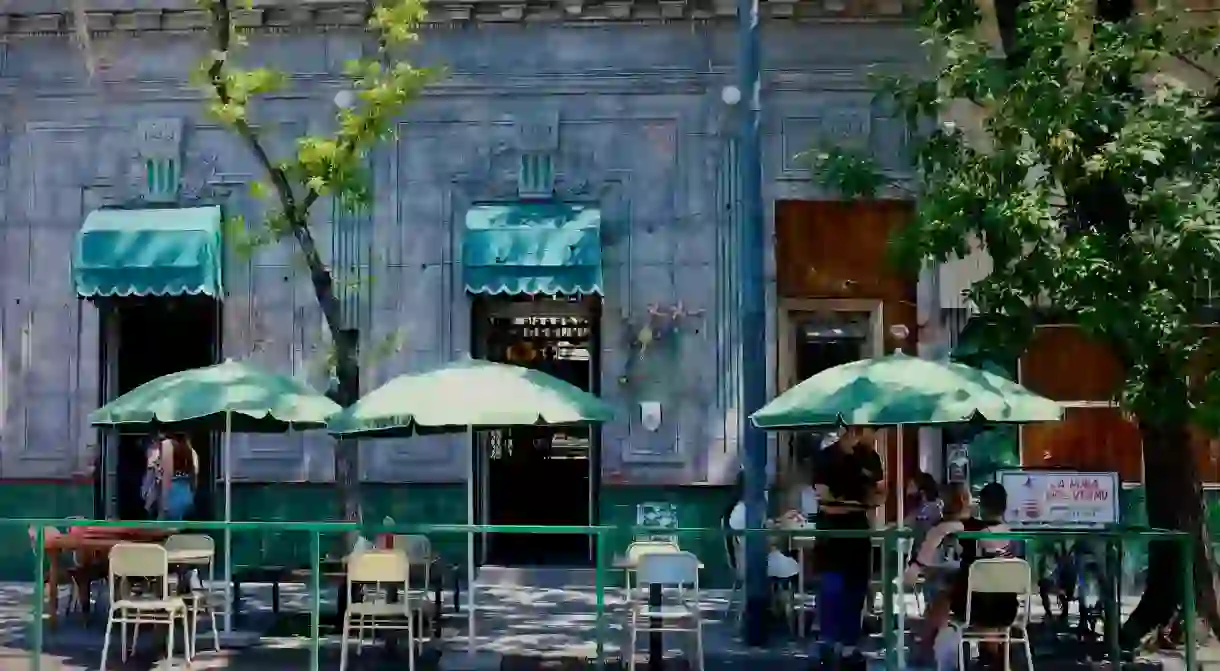A Guide to Visiting the Palermo Neighbourhood in Buenos Aires

Welcome to Palermo, the largest barrio, or neighbourhood, in Buenos Aires. Palermo is a hot destination whether you’re a foodie, an art fan, a shopaholic or a plain old reveller. An influx of expats helped put it on the map, but gradually locals have begun to call it home. Rock up for a fine blend of culture and cool. Here is your guide to the top things to see and do in Palermo.
Did you know you can now travel with Culture Trip? Book now and join one of our premium small-group tours to discover the world like never before.
The Botanical Gardens
Building, Park
Feria de Plaza Serrano
Architectural Landmark
Surrounded by the life-affirming buzz of bars, restaurants and stores, the Feria de Plaza Serrano is one of the coolest bohemian areas. Come to browse the open-air market, filled with stalls and craft booths selling jewellery, tops, bags, leather accessories and clothes by up-and-coming designers. Once you’ve shopped, you’ll be ready to slide into one of the atmospheric cafes lining the square for a reviving glass of Argentinian Malbec.
MALBA (the Latin American Art Museum of Buenos Aires)
Museum
Parque Tres de Febrero
Park
This scenic verdant space in the north of Palermo, designed by Franco-Argentine architect Carlos Thays, was inspired by the Bois de Boulogne in Paris. Take time out of sightseeing to sit under the white pergola and see if you can identify any of the tree species and tropical plants. In the poet’s garden you can spot statues of famous literary figures, from William Shakespeare to Federico García Lorca, Antonio Machado and Jorge Luis Borges. While here, check out the sprawling Rosedal de Palermo park – it’s a real showstopper, planted with no fewer than 12,000 roses and home to a serene lake in which to while away a couple of hours.
Museo Nacional de Arte Decorativo
Museum
This very finely featured Beaux-Arts mansion, the former home of Chilean aristocrats Matías Errázuriz and Josefina de Alvear, is now the display space for their art collection of heavyweight works – El Greco, Manet and Rodin – as well as other personal belongings, from pretty dishes to period furniture. It’s worth a nose around for the chance to see how the other half lived in the 20th century. This ornate home, in particular, was inspired by the Palace of Versailles.
Evita Peron Museum
Museum
Don Julio steakhouse
Restaurant, Steakhouse, Argentina, South American
This full-on traditional steakhouse, five blocks or so from the Museo Evita, prides itself on demonstrating what the famous Argentine asado (grill) is all about. The crowd is a mixture of Porteños (Buenos Aires folk) and visitors, all dining cheek by jowl against walls lined with old wine bottles signed by past guests. Aside from obvious choices such as rump steak, it’s impossible to say no to the fried beef empanadas – crispy mollejas (sweetbreads), lightly seasoned with lemon juice and salt.
La Viruta
School
As everybody knows, it takes two to tango – and if you turn up alone at this welcoming space in the basement of the Armenian Cultural Center, you’ll be paired with a partner who’ll teach you the moves. Your fellow dancers are an up-for-it mix of tourists, expats and locals, all keen to get on – and get on the dance floor. As the night goes on, you can sit back, watch and learn from experienced dancers, who will put on a riveting display of how it should be done.













